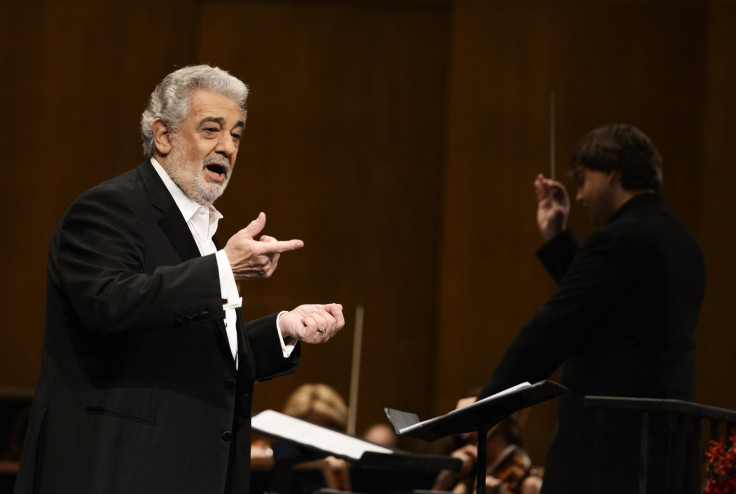
Spanish opera singer Plácido Domingo, 72, is in the hospital after suffering from a pulmonary embolism. His spokeswoman, Nancy Seltzer, told The L.A. Times that the tenor experienced "intense pain" on Monday after which he was admitted to a hospital. She said that Domingo wasn't performing at the time he experienced the pain.
Domingo's illness was caused by deep vein thrombosis, a condition in which a blood clot forms in the leg and travels up to the lung. His spokesperson said that he was treated with blood thinners, which dissolved the clot, and that he was in good spirits.
Seltzer added on Tuesday afternoon that Domingo had responded well to treatment and was out of danger, but it is still unknown when he will be returning to the stage. "Per his doctor's instructions, he will be forced to rest for three to four weeks. His exact return to his performing engagements remains subject to how fast he can heal and regain his characteristic strength."
She also pointed that Domingo's family was with him in Madrid. "He is expected to fully recover," she said.
The tenor and conductor has already canceled all five of his scheduled "Il Postino" performances, as well as the conducting event at Plaza Mayor in Madrid, according to the spokeswoman.
This is not the first time Domingo has faced a serious medical condition. He was diagnosed with colon cancer and underwent surgery in 2010, only to return to the stage 45 days later. He's maintained a vigorous schedule and displayed and uncommon vitality at an age when most stars have already retired.
"I feel strong still," said the tenor back in December in an interview with CBS News. "But you know, I mean, you never know how much more time you will have the voice. That's the first thing. But secondly, how the health will be and how is the strength."
He is the most visible opera singer in the world and has performed more than 140 roles, expanding his repertoire to include baritone roles in the past half-decade.
© 2024 Latin Times. All rights reserved. Do not reproduce without permission.
